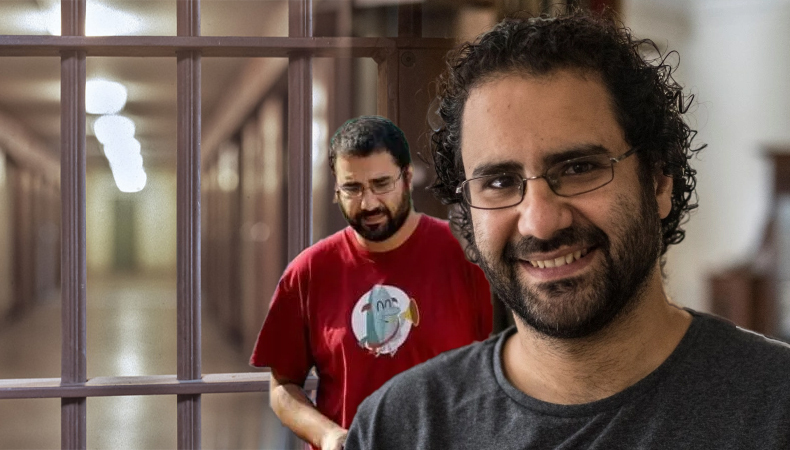All about Alaa Abd el-Fattah and the reason he is imprisoned in Egypt

Alaa Abd el-Fattah, a detained Egyptian-British activist, has been held by Egyptian authorities on grounds of disinformation dissemination for years, and there is rising concern about his whereabouts as he maintains his hunger strike in protest.
Abd el-Fattah declared he had stopped drinking water on Sunday, as world leaders gathered in Egypt for the COP27 climate meeting in Sharm el-Sheikh.
His quick release is required, according to worried family members and onlookers who worry he may pass away in the coming days. The government of the United Kingdom has stated that it is working to have him released.
What you need to know about the case is provided below.
Why is Abd el-Fattah imprisoned and who is he?
During Egypt’s 2011 popular movement, which ousted former President Hosni Mubarak from office after 30 years in power, Abd el-Fattah rose to prominence as a pro-democracy activist and blogger.
However, the 40-year-old has spent most of the last ten years in jail. After being found guilty of violating the country’s anti-protest legislation two years prior, when then-president Abdel Fattah el-Sisi conducted a coup against Mubarak’s democratically elected successor Mohamed Morsi, he was given a five-year prison sentence in 2015.
Read | Alaa Abdel Fattah: The activist jailed in Egypt who is counting his final days
In a contentious election in 2014 marked by low turnout and a broad crackdown on opposition, El-Sisi went on to win the presidency. Since then, he has been charged with imprisoning tens of thousands of opponents of his regime.
Up until his release on probation in March 2019, Abd el-Fattah remained behind bars. However, he was apprehended again within six months, and in December 2021, he was given a further five-year sentence on grounds of disseminating fraudulent information. Human rights activists claim that Abd el-ongoing Fattah’s detention and the lawsuit against him are unlawful and a “retaliation” against him for being a key figure in the 2011 revolt.
Abd el-Fattah chose to go on a hunger strike for what reason?
Abd el-Fattah went on a hunger strike in April, just days after earning British citizenship while incarcerated due to the fact that his mother was born in the UK, to protest his continuing imprisonment and treatment in jail.
He reportedly became “skin on bone” since, but over the weekend he intensified his months-long protest by telling his family he would quit drinking water.
Volker Turk, the UN’s high commissioner for human rights, told Abd el-Fattah on Tuesday that he was in grave danger and urged Egypt to release him right now. At a news conference in Geneva, Turk’s spokesperson, Ravina Shamdasani, stated that “his dry hunger strike puts his life at severe risk.”
What is the UK’s position on his case?
Abd el-situation Fattah’s has reportedly left the UK government “extremely concerned,” and it has stated that it is “doing everything it can” to obtain his release.
In a meeting with el-Sisi on Monday on the margins of the COP27 summit, the British leader brought up the activist’s detention, according to Prime Minister Rishi Sunak’s office. Sunak’s office issued a statement saying, “The Prime Minister indicated he hoped to see this resolved as soon as possible and would continue to advocate for progress.”
However, Cairo has not yet indicated that it intends to release Abd el-Fattah, and the Egyptian government has repeatedly refused requests from British consular officers to visit him in custody. As a result, London’s efforts have been ineffective to date.
Meanwhile, critics claim that authorities from the ruling Conservative Party did not exert enough pressure on the matter. The main opposition Labour Party’s shadow foreign secretary, David Lammy, tweeted on Tuesday that “this government’s diplomacy has been weak for too long.” “The government must make it clear that if consular access is not immediately allowed and Alaa Abd el-Fattah is not freed and reunited with his family, there will be major diplomatic implications.”




